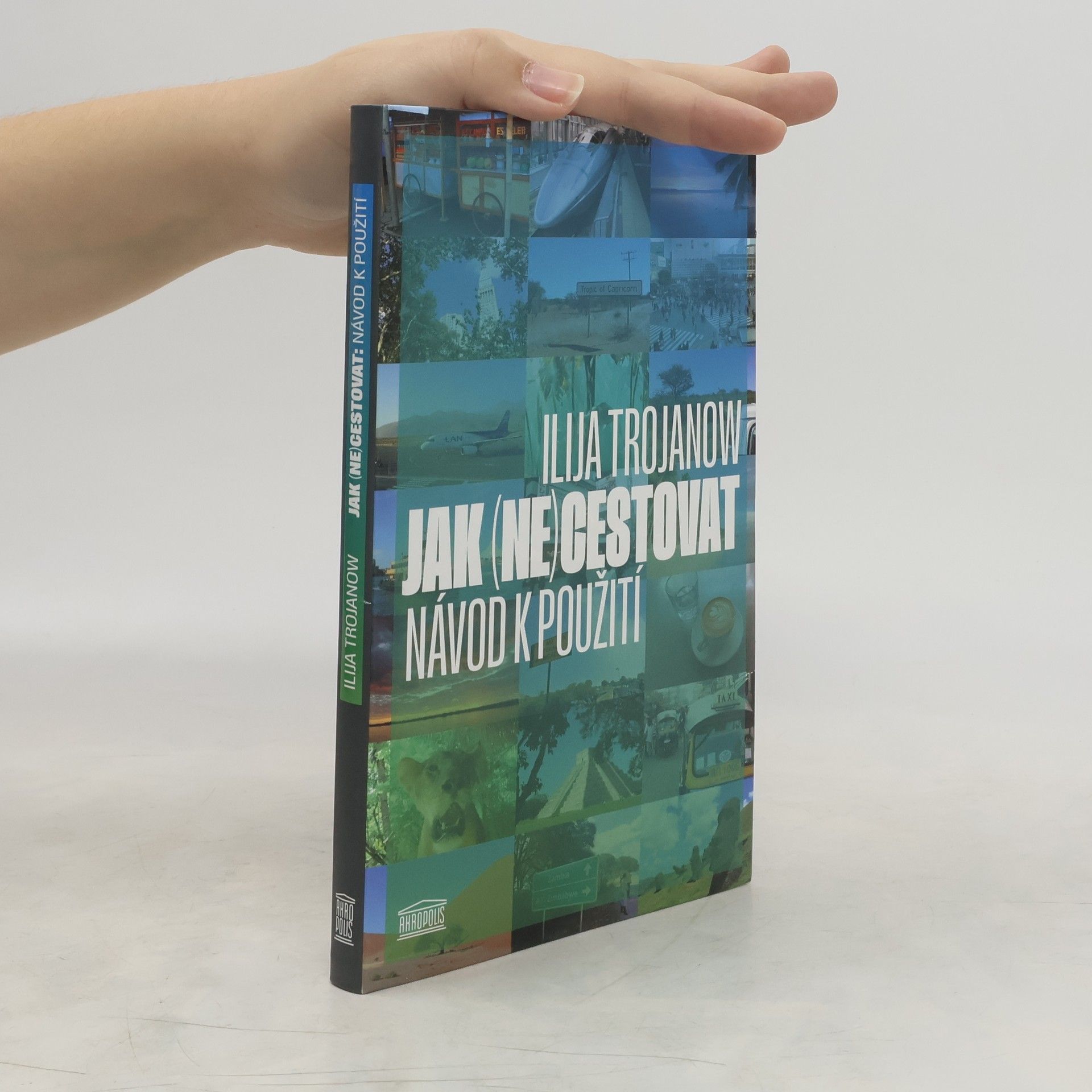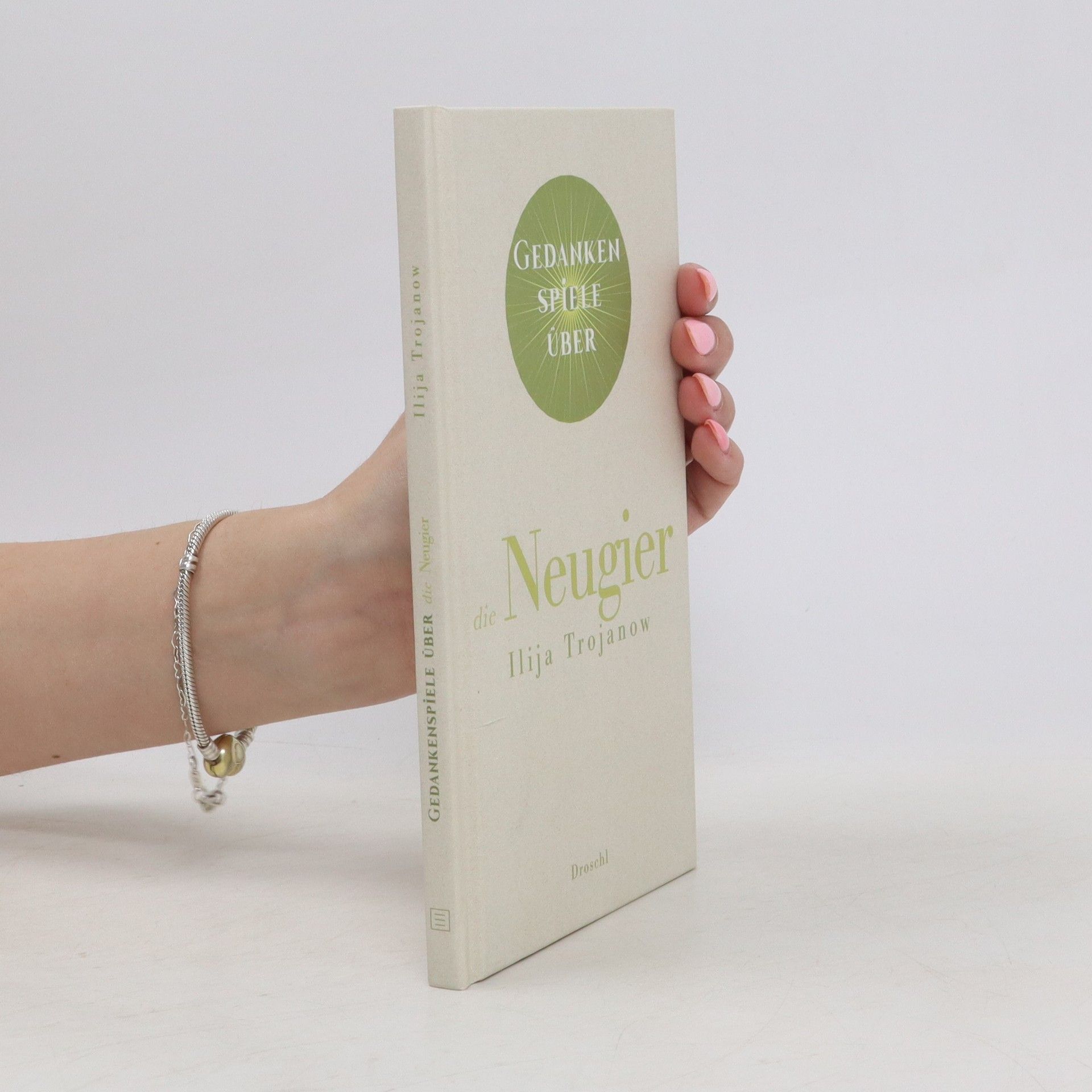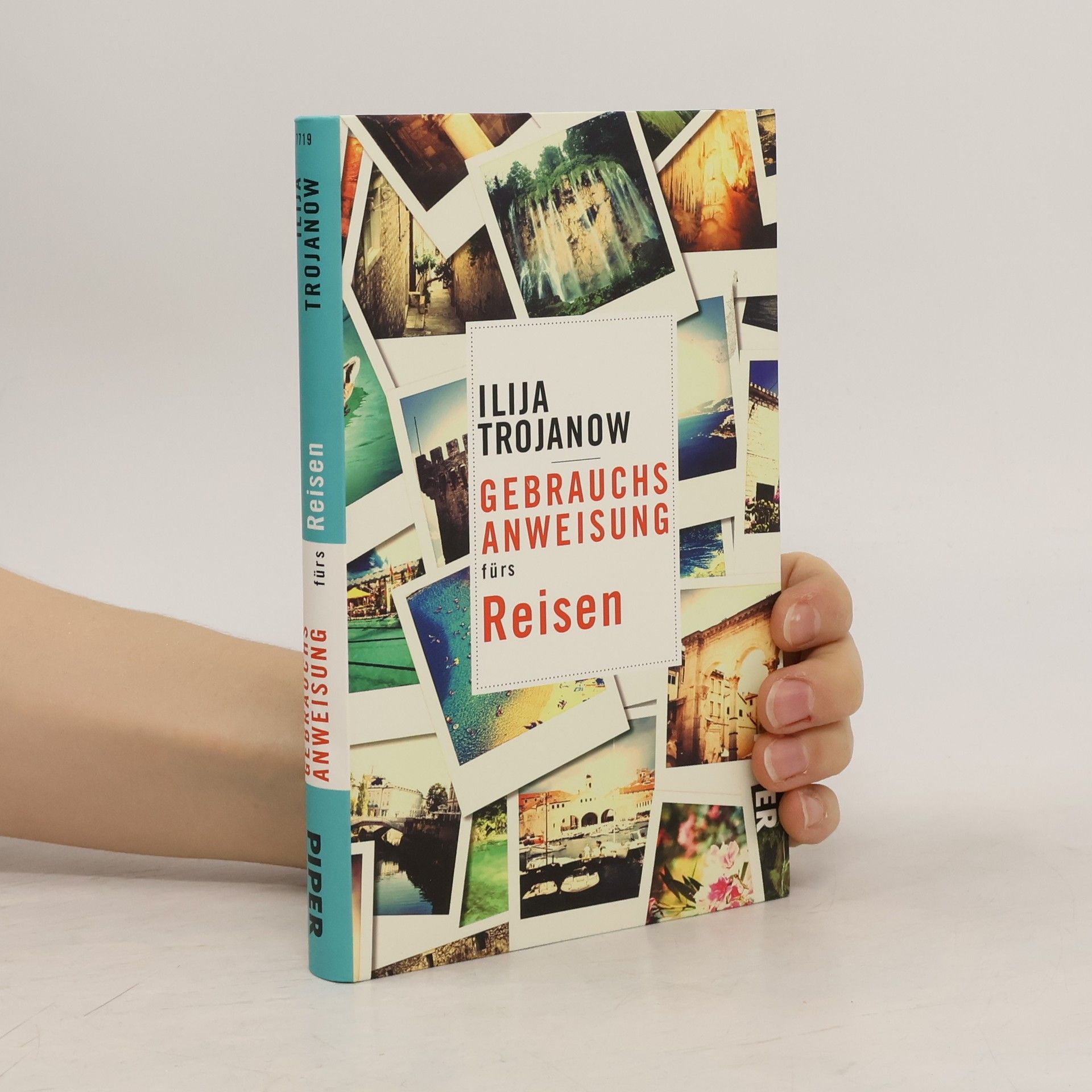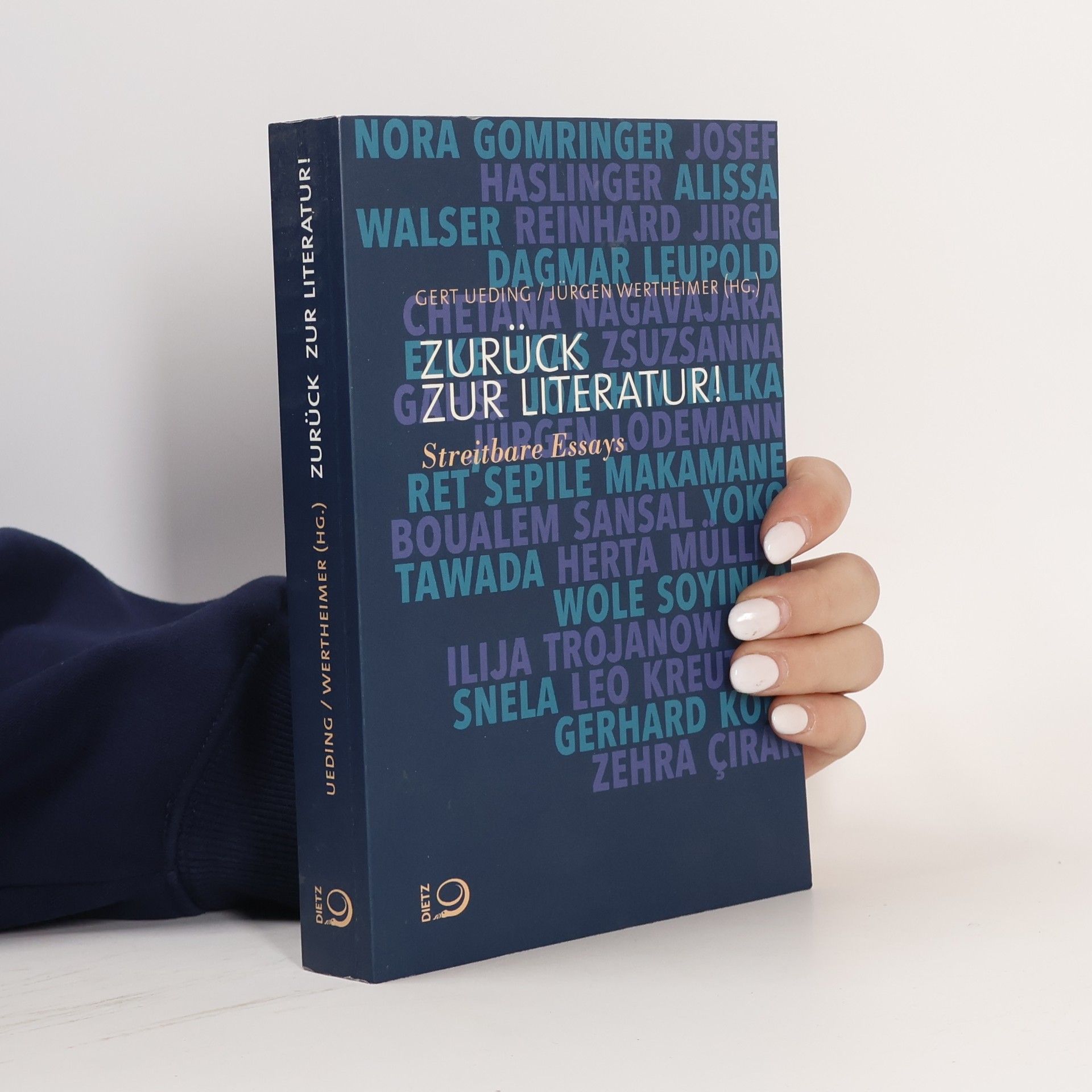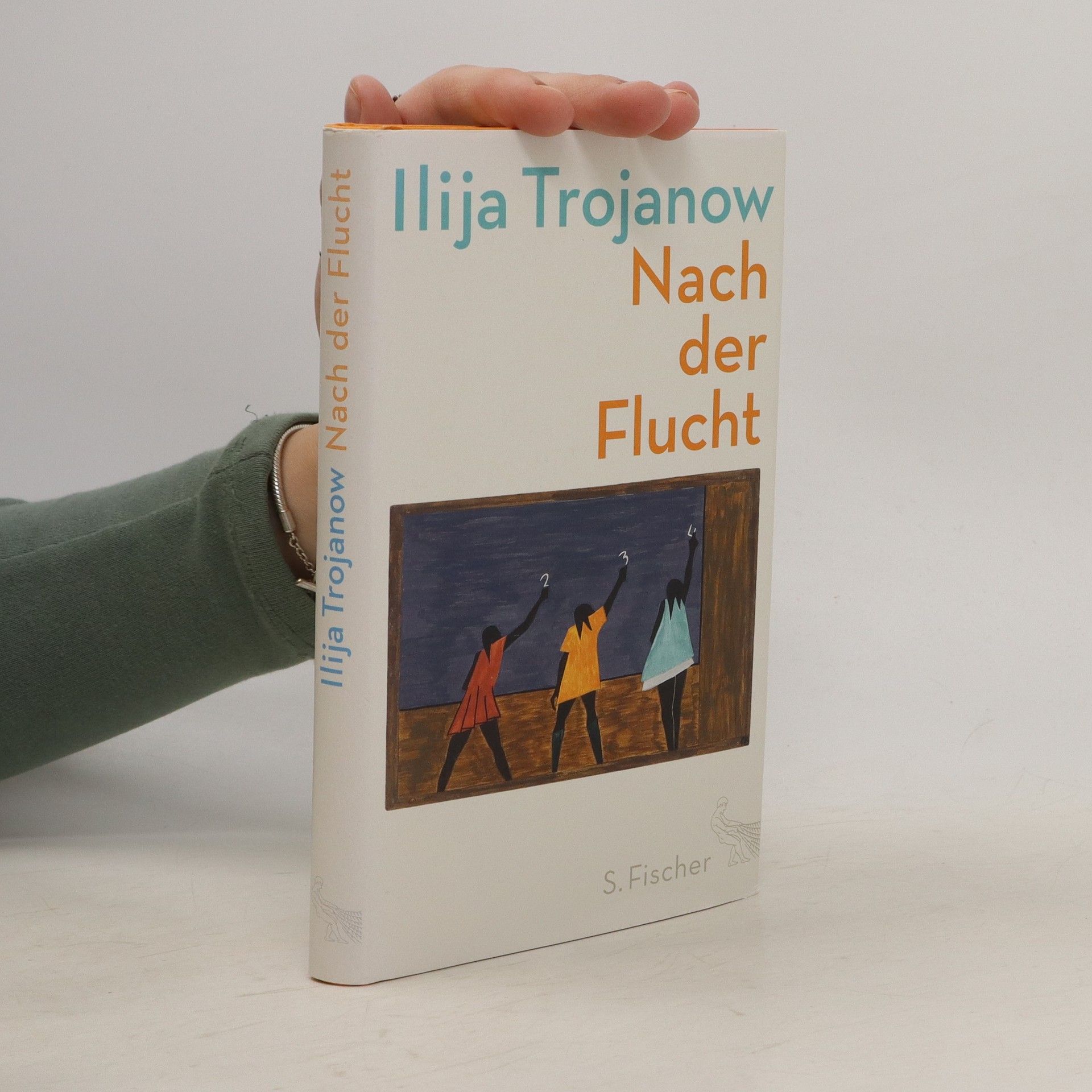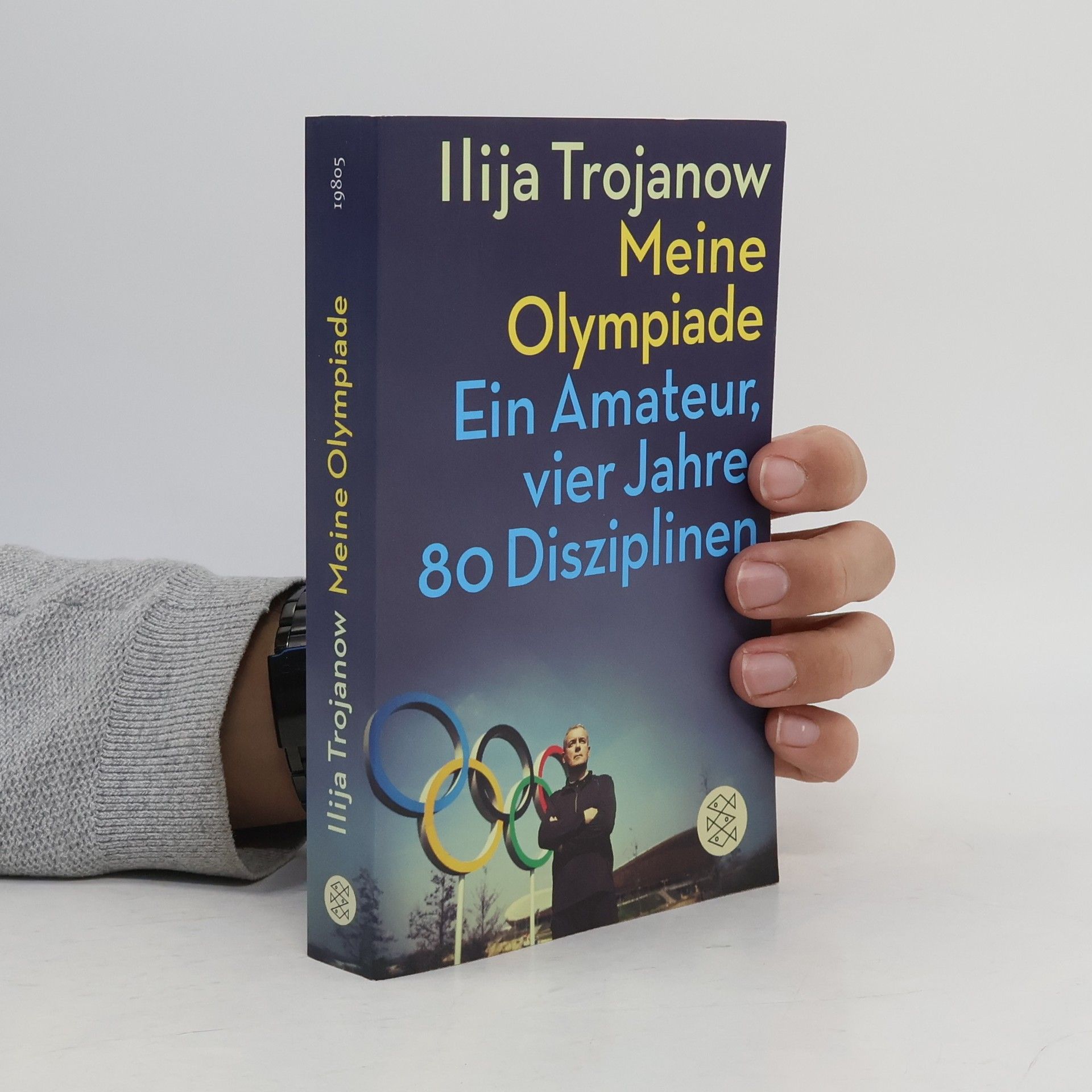Ilija Trojanow ist nicht nur literarischer Weltensammler, sondern auch ausgebildeter Sommelier. Die enge Freundschaft mit einem der führenden Riesling-Weinmacher diente als Inspiration für diese Liebeserklärung an den Wein. Was bedeutet es für unsere Kultur, Wein zu trinken? Wein zu trinken ist ein Dialog, antwortet Trojanow. Mit vielen Partnern. Mit der Zeit. Mit dem Boden. Mit einem Winzer oder einer Winzerin. Mit sich selbst und den unausgeloteten Rätseln des eigenen Geschmacks. Weingenuss ist eine höchst individuelle Erfahrung. Für Ilija Trojanow ist Wein eine Entschädigung für die Vertreibung aus dem Paradies. Ilija Trojanow sinniert über Zeit, Terroir, Natur und Kultur, über Kapital, Geschmack, Verkostung und Rausch. Auf poetische Weise nähert er sich dem Geheimnis des Weins.
Ilija Trojanow Book order (chronological)
Ilija Trojanow is a German writer of Bulgarian origin, also working as a translator and publisher. His literary work often explores themes of identity, migration, and the clash of cultures. He transforms his experiences from various backgrounds into compelling narratives that encourage readers to reflect. Trojanow's style is known for its richness and depth.

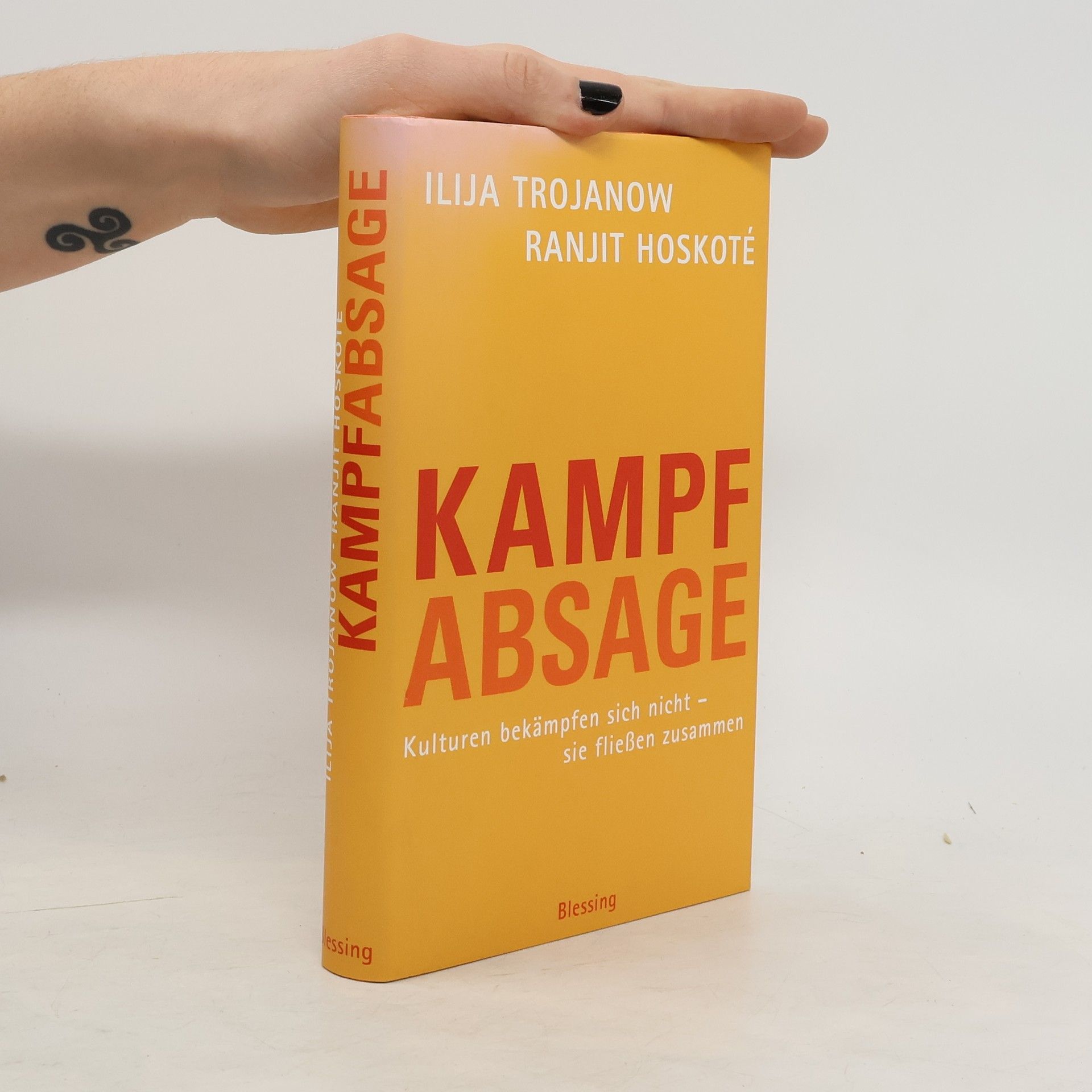
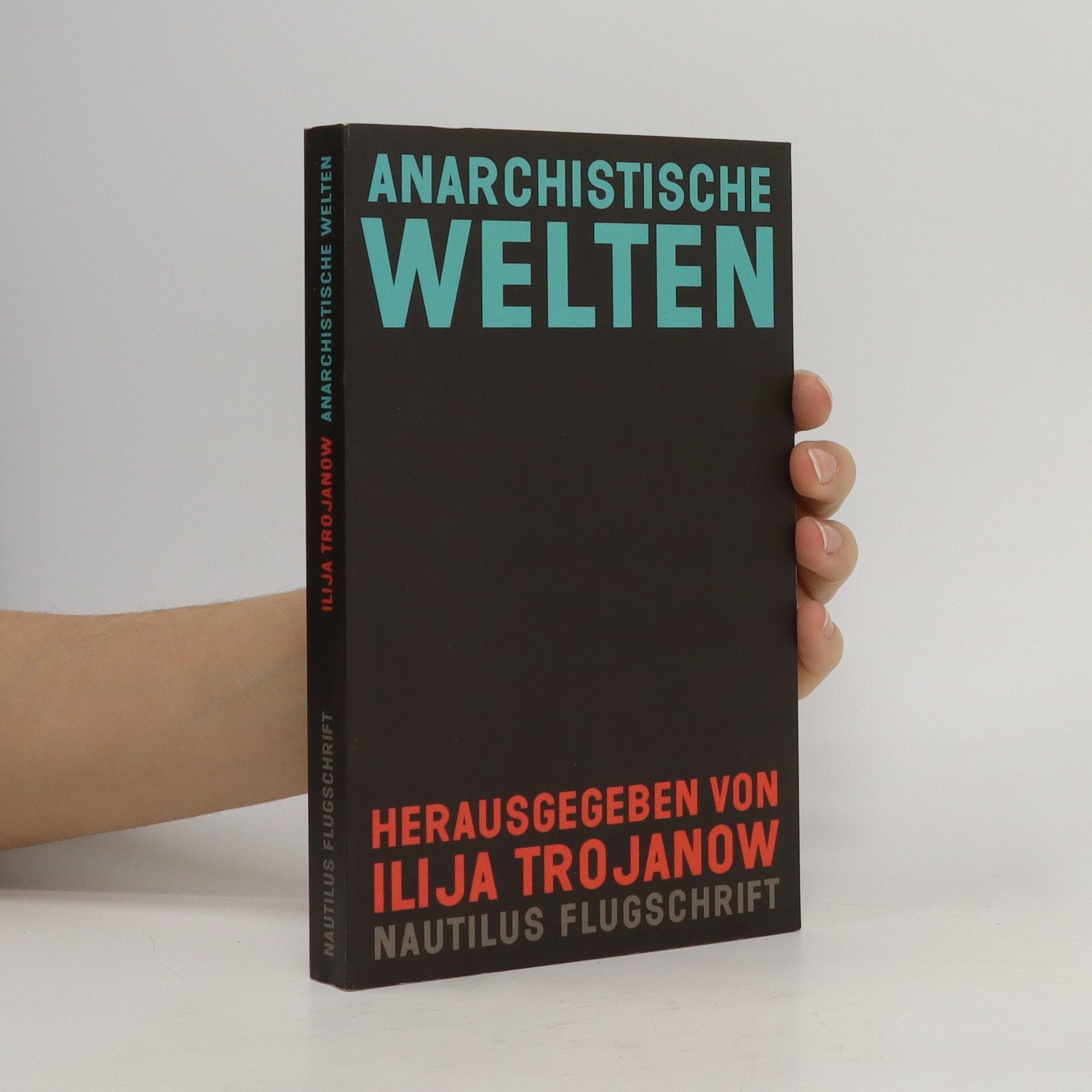
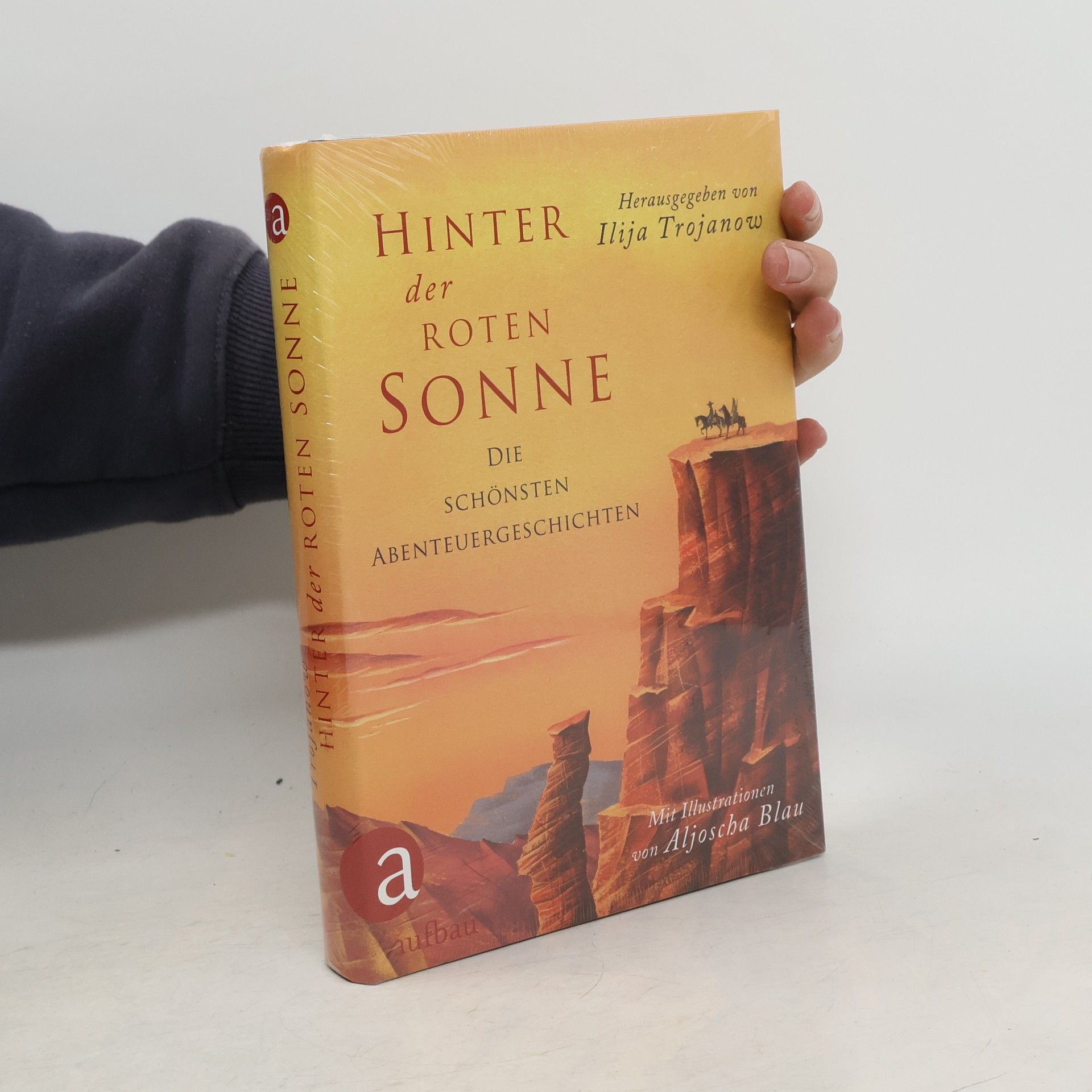

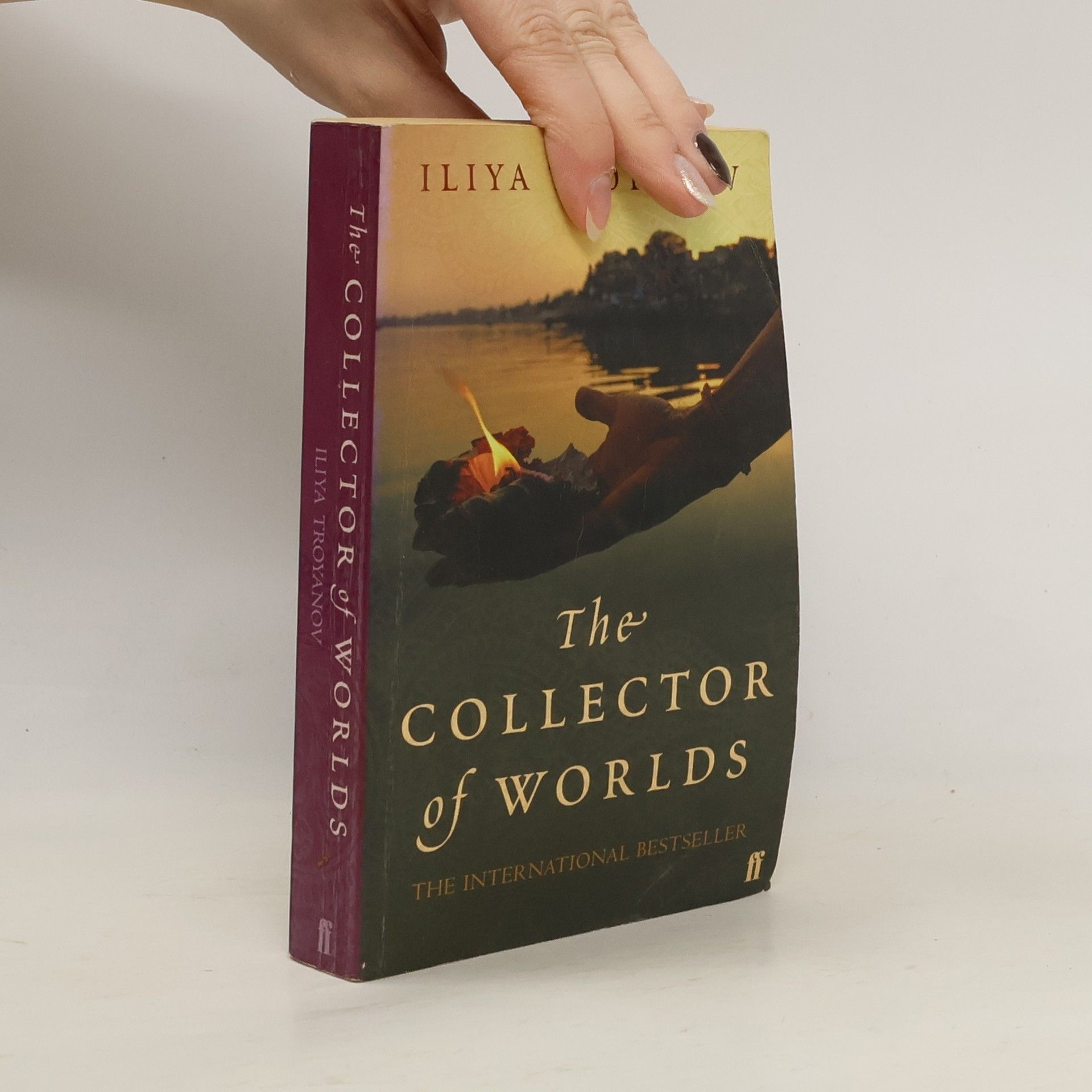

Fans
Von den Höhen und Tiefen sportlicher Leidenschaft
Bestseller-Autor Ilija Trojanow und Klaus Zeyringer zeigen den Sport aus einer anderen Perspektive: aus der Perspektive von uns Fans! Denn wie der Sport erlebt wird, welche Höhepunkte, Emotionen, Rituale und Gemeinschaften er stiftet, das macht seine große Faszination aus. In Reportagen live vor Ort berichten sie von großen Wettkämpfen u.a. aus der Welt des Fußballs, des Tennis, des Biathlon und Handballs, des Schwingens und Darts, des Cricket und des Radfahrens. Sie erzählen von Bierduschen und Fangesängen, von Feuerwerk und Fanblocks – und von Stadien ohne Zuschauer, ohne Fans. Ergänzend zu den Reportagen denken sie über das Wesen des Fantums nach, über Emotionen, Nationalismus und Männlichkeit, über Fachsimpelei, Geld und VIP-Zonen, über Mythen, Inszenierung und Ersatzreligionen. Ihr Buch ist sowohl Feier wie Analyse der großen Leidenschaft, die wir Menschen dem Sport entgegenbringen: mitreißend erzählt, ungewöhnlich und voller Momente mitfühlender Erkenntnis.
Unter Piraten in der Karibik, mitten in der Russischen Revolution - Zeitreisen sind voller Überraschungen. Fest entschlossen betritt Cya die fremden Welten. Inspiriert von der friedlichen und selbstbestimmten Gesellschaft der Zukunft, in der sie lebt, reist sie von Zeit zu Ort und versucht, die Vergangenheit von ihren Fesseln zu befreien – mit unterschiedlichem Erfolg. In »Tausend und ein Morgen« entwirft Ilija Trojanow ein leidenschaftliches Porträt seiner mutigen Heldin. Wie kein anderer Autor verbindet er erzählerische Virtuosität und kritisches Denken zu einem modernen Epos, das alle Grenzen überwindet, Raum und Zeit ausleuchtet und einen frischen Blick in die Zukunft wagt. Mit sinnlichen Bildern und überbordenden Geschichten erfindet Ilija Trojanow den utopischen Roman neu - ein Roman, der von der unerschöpflichen Kraft unseres Denkens erzählt.
Jak (ne)cestovat : návod k použití
- 160 pages
- 6 hours of reading
Pěšky, nebo letadlem? Na vlastní pěst, nebo se zájezdem? Co vlastně hledáme, když navštěvujeme cizí země? Co nového chceme objevit, kolik jsme toho na sobě ochotni změnit, čeho jsme připraveni se vzdát? Německý spisovatel Ilija Trojanow žil na čtyřech kontinentech a procestoval přes sto zemí světa. Na základě svých zážitků a zkušeností píše o smyslu a přínosu cestování, přičemž ve svém textu propojuje fundované pojednání o historii cestování s vtipnými historkami z vlastních cest. Ve dvanácti kapitolách se zamýšlí nad tím, co je esencí cestování, jak cesty do cizích zemí můžou (ale nemusí) proměnit náš pohled na svět, a jak se masový turismus nesprávně chápe jako cestování. Proč jsou knižní turističtí průvodci škodliví? Proč je někdy lepší cestovat o samotě? Proč by se člověk neměl na cestu připravovat předem? Vydejte se spolu s autorem na vzrušující, zábavnou a poučnou cestu! Svazek je součástí řady Gebrauchsanweisungen (Návod k použití) mnichovského nakladatelství Piper, jejímž cílem je publikovat nekonvenční a zábavné turistické průvodce. Autorem každého průvodce je významná osobnost z oblasti literatury, kultury nebo žurnalistiky. První svazek vyšel už v roce 1978 a celá edice se od té doby rozrostla na bezmála 120 titulů. Zatímco se většina svazků této řady zaměřuje na jednu konkrétní zemi, město či oblast, je tato kniha jedinečná tím, že jejím tématem je celý jeden fenomén.
Gedankenspiele über die Neugier
- 53 pages
- 2 hours of reading
Ilija Trojanow widmet sich in seinen Gedankenspielen der Neugier und weckt das Verlangen, die Welt zu erfahren. Durch die Figuren Herr und Frau Gier und etymologische Analysen vermittelt er Wissen unterhaltsam und regt die Leser*innen an, neugierig auf das Mögliche zu werden. Neugier wird als Schlüssel zur Utopie beschrieben.
Doppelte Spur
- 239 pages
- 9 hours of reading
Der investigative Journalist Ilija wird innerhalb weniger Minuten von zwei Whistleblowern des amerikanischen und des russischen Geheimdienstes kontaktiert. Ein großer Coup? Eine Falle? Er lässt sich auf das Spiel ein, zusammen mit Boris, einem amerikanischen Kollegen, folgt er der doppelten Spur nach Hongkong, Wien, New York und Moskau.Die geleakten Dokumente eröffnen einen Abgrund von Korruption und Betrug, von üblen Verstrickungen krimineller Oligarchen und Mafiosi. Auch die Staatspräsidenten Russlands und Amerikas sind involviert. Was darf man glauben? Mit welcher Absicht werden Lügen verbreitet? Sind die beiden Reporter nur ein Spielball der Geheimdienste?Literarisch virtuos wie kein anderer spielt Ilija Trojanow in diesem Roman mit Fakten und Fiktionen und führt uns wie nebenbei vor Augen, wie sehr wir durch Fake News zu Komplizen der Macht werden.
Gebrauchsanweisung fürs Reisen
- 207 pages
- 8 hours of reading
Zu Fuß oder mit dem Flugzeug, all inclusive oder solo - was suchen wir, wenn wir in andere Länder reisen? Wie viel Neues wollen wir entdecken, was hinter uns lassen, wie viel sind wir bereit zu ändern? Ilija Trojanow hat auf vier Kontinenten gelebt. Ausgehend von persönlichen Erlebnissen schreibt er über Sinn und Ertrag des Vagabundierens, verbindet profundes Reflektieren mit Lustigem und Leichtem. In einzelnen Etappen geht es um Vorbereitungen und passendes Marschgepäck, um Reisen allein oder in Gesellschaft, um den richtigen Proviant und Durststrecken unterwegs. Um Kauderwelsch und Wegweiser, Zimmer mit Aussicht und Souvenirs. Gekonnt spannt Trojanow den Bogen bis zum Massentourismus und zum Reisen als Kunst, die es neu zu entdecken gilt.
Mit Beiträgen von zahlreichen Autoren wird die essentielle Rolle der Literatur für das öffentliche und private Leben hervorgehoben. Sie ist entscheidend für die (Charakter-)Bildung, das Verständnis von Kultur und die menschliche Identität. Die alarmierende Marginalisierung der Literatur in Schulen, Hochschulen und der populären Kultur führt zu einem drohenden Verlust von Wissen, freiheitlichem Denken und gesellschaftlicher Orientierung. Anstatt elitäre Bildungstraditionen zu bewahren, wird auf die Gefahren hingewiesen, die mit der Reduktion auf „das Wesentliche“ und der Vermeidung von Überforderung einhergehen. Die Flut kontextloser Bilder trägt zur Verarmung des Denkens und zur politischen Sterilisierung bei. Besonders besorgniserregend ist der Verlust von Text- und Lesekompetenz sowie der Fähigkeit, in komplexen und ambivalenten Zusammenhängen zu denken und zu empfinden. Auch das, was man als „Möglichkeitssinn“ bezeichnet, ist durch den Verzicht auf Literatur bedroht, was eine wichtige Waffe im Kampf gegen Fundamentalismen gefährdet. Der Band diskutiert sowohl die Ursachen und Folgen dieser Entwicklung als auch mögliche Vorschläge zum Widerstand.
Nach der Flucht
- 128 pages
- 5 hours of reading
»Es gibt ein Leben nach der Flucht, doch die Flucht wirkt fort, ein Leben lang.« Ilija Trojanow ist als Kind zusammen mit seiner Familie aus Bulgarien geflohen, eine Erfahrung, die ihn bis heute nicht mehr los lässt. Virtuos, poetisch und klug reflektierend erzählt Ilija Trojanow von seinen eigenen Prägungen als lebenslang Geflüchteter. Von der Einsamkeit, die das Anderssein für den Flüchtling tagtäglich bedeutet. Davon, wie wenig die Vergangenheit des Geflüchteten am Ort seines neuen Daseins zählt. Was das Existieren zwischen zwei Sprachen mit ihm macht. Welche Lügengeschichten man als Geflüchteter den Daheimgebliebenen auftischt. Und dass man vor der Flucht wenigstens wusste, warum man unglücklich war. Ilija Trojanow erzählt von sich selbst, zugleich ist er eine exemplarische Figur. So gelingt ihm eine behutsame und genaue Topographie des Lebens nach der Flucht, das existentielle Porträt eines Menschenschicksals, das unser 21. Jahrhundert bestimmt.
Meine Olympiade
Ein Amateur, vier Jahre, 80 Disziplinen
Ilija Trojanow, bekannt durch seinen internationalen Bestseller, unternimmt in seinem neuesten Werk eine faszinierende Reise in die Welt des Sports. Während der Olympischen Spiele 2012 fasst er den Entschluss, alle achtzig Olympia-Sommer-Einzeldisziplinen zu trainieren, mit dem Ziel, halb so gut abzuschneiden wie der Goldmedaillengewinner von London. Er probiert sich in Disziplinen wie Diskuswerfen, Speerwerfen und Hammerwerfen, spielt Badminton, meistert den Zehnkampf und bezwingt im Kajak das Wildwasser. Zudem lernt er Ringen im Iran, boxt in einem legendären Gym in Brooklyn, trainiert Judo in Japan und läuft im Hochland von Kenia. Trojanows Bericht bietet einen einzigartigen Einblick in die verschiedenen Sportwelten und -milieus. Es ist eine kluge, humorvolle und selbstironische Reflexion über Grenzen, die Beziehung von Geist und Körper sowie das Älterwerden. Geschrieben mit der Leichtigkeit eines Fechters und dem Punch eines Boxers, enthält das Werk auch ein Kapitel über Golf, das 2016 wieder olympisch wurde. Eine Übersicht über die olympischen Sommersportarten und Trojanows Trainingsorte umfasst unter anderem Badminton in Stuttgart, Boxen in Brooklyn, Judo in Nagoya und Leichtathletik in London und Kenia.


